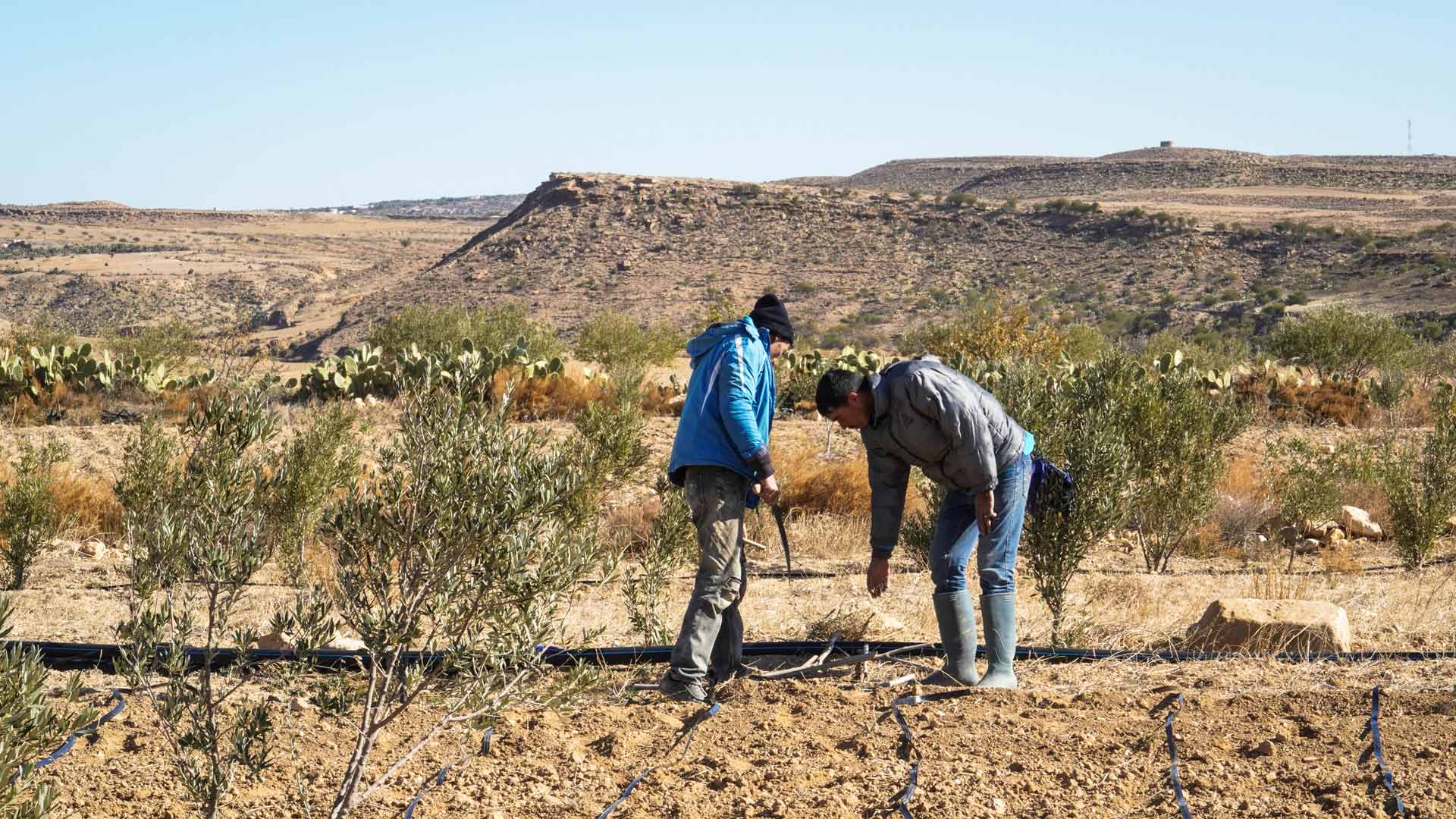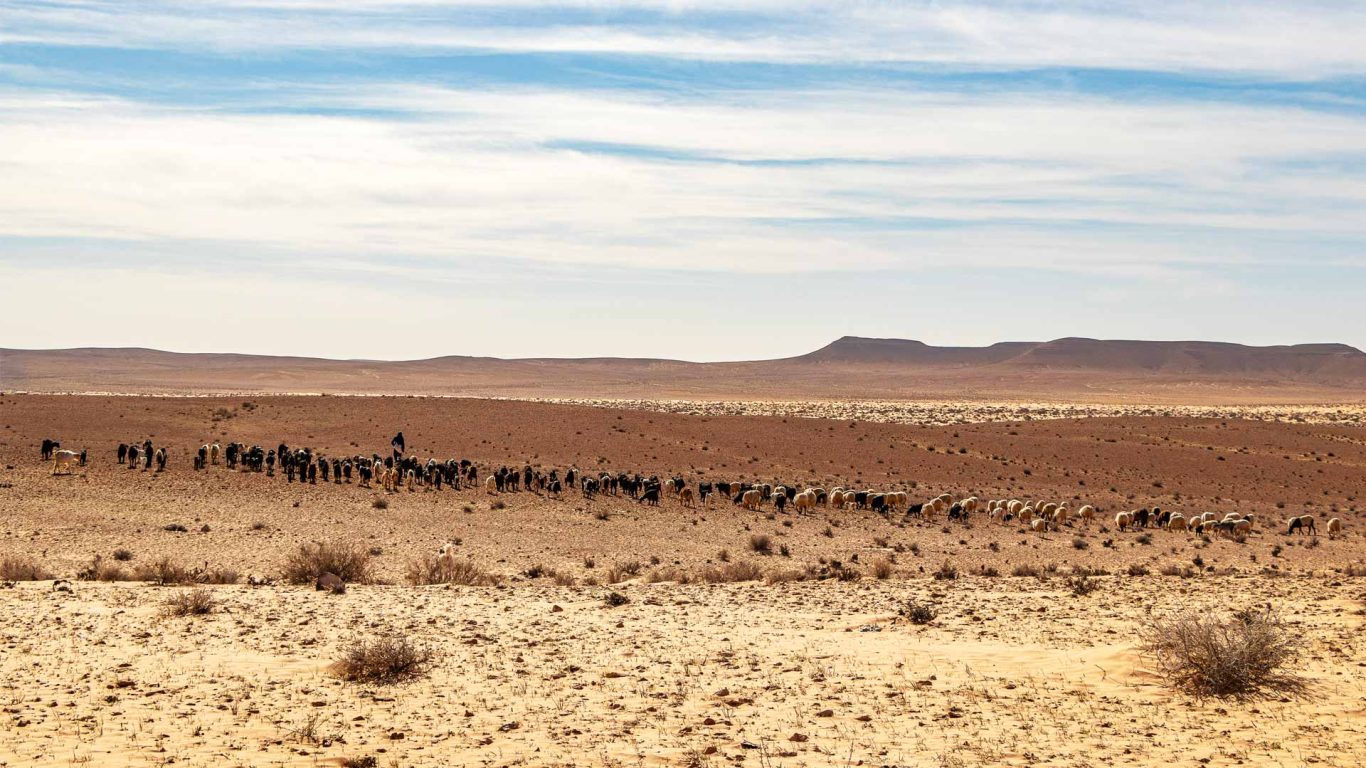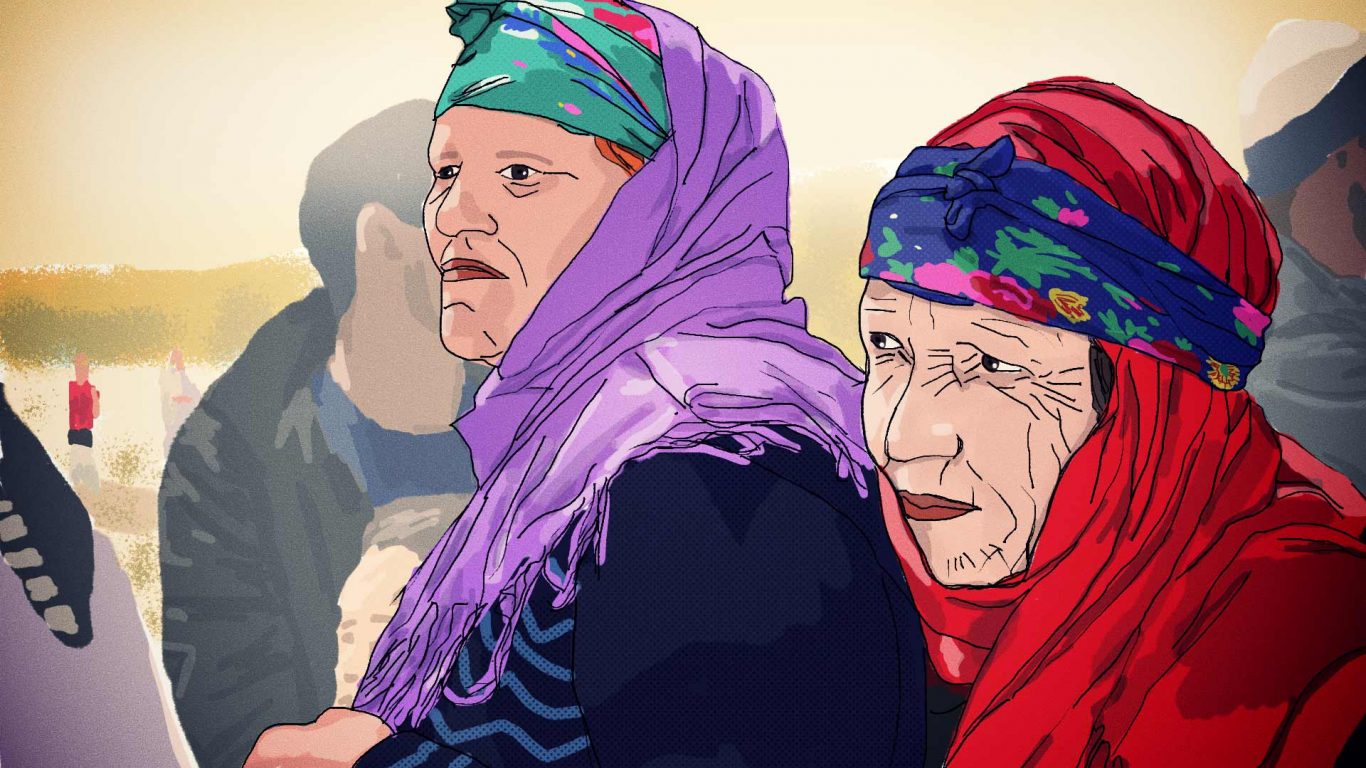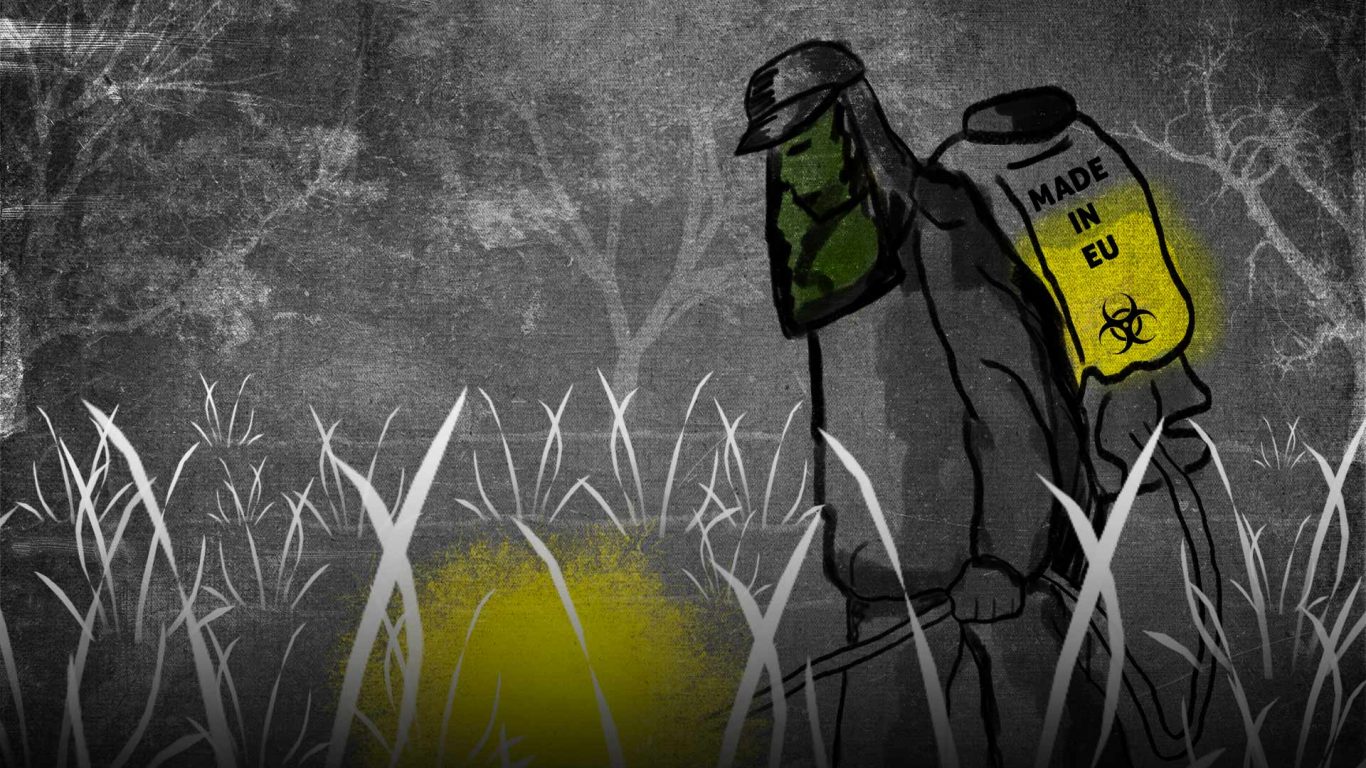On the same subject
At 9am on a Tuesday morning, the Makthar middle school's paved courtyard is deserted. The teachers' voices echo through the classrooms, barely breaking the silence. One of them, empty, is quite special. Behind the school desks, on the back wall, students' names written in felt-tip pens make up the expression: "Tell the future we're coming". For several months, the school has been receiving support from a particular organization: Wallah We Can, an association dedicated to children and children's rights.
It all started in 2012, when the founder, Lotfi Hamadi, heard about the protests in the region of Siliana, on the border between northern and central-western Tunisia. The riot police fired buckshot at the protesters, some of whom were high school students. While trying to organize a charity event, Lotfi discovered the local residential school.
"The place was in a dismal state. The mattresses were torn off because the girls had to use the foam as sanitary protection during their menstrual cycles, and the residents were only allowed one, often cold shower a month," says the 40-year-old.
Lotfi founded the association the same year and embarked on a process of reflection to find solutions to the problems he had noted. The founder believes that "the child is a future adult", whose "dignity" must be safeguarded. He wishes to turn the school into a "social, ecological, and solidarity-based enterprise that establishes a virtuous cycle that benefits everyone".
An entire system "for the benefit of the younger generation".
Informally renamed the "Green School", the residential school has undergone many improvements in just a few months: new electrical switchboards that meet the standards, thermal insulation, photovoltaic panels and solar water heaters on the roofs, new mattresses for the dormitories, paint jobs. etc.
"We provided the school residents with hot water. Then came energy autonomy and the next step will be food self-sufficiency," highlights Lotfi.
To pursue their efforts towards guaranteeing the fundamental rights of children, the association's teams have been addressing the food issue. "The pupils don't use cutlery to eat in the canteen. They use bread as spoons to eat pasta," he noted.
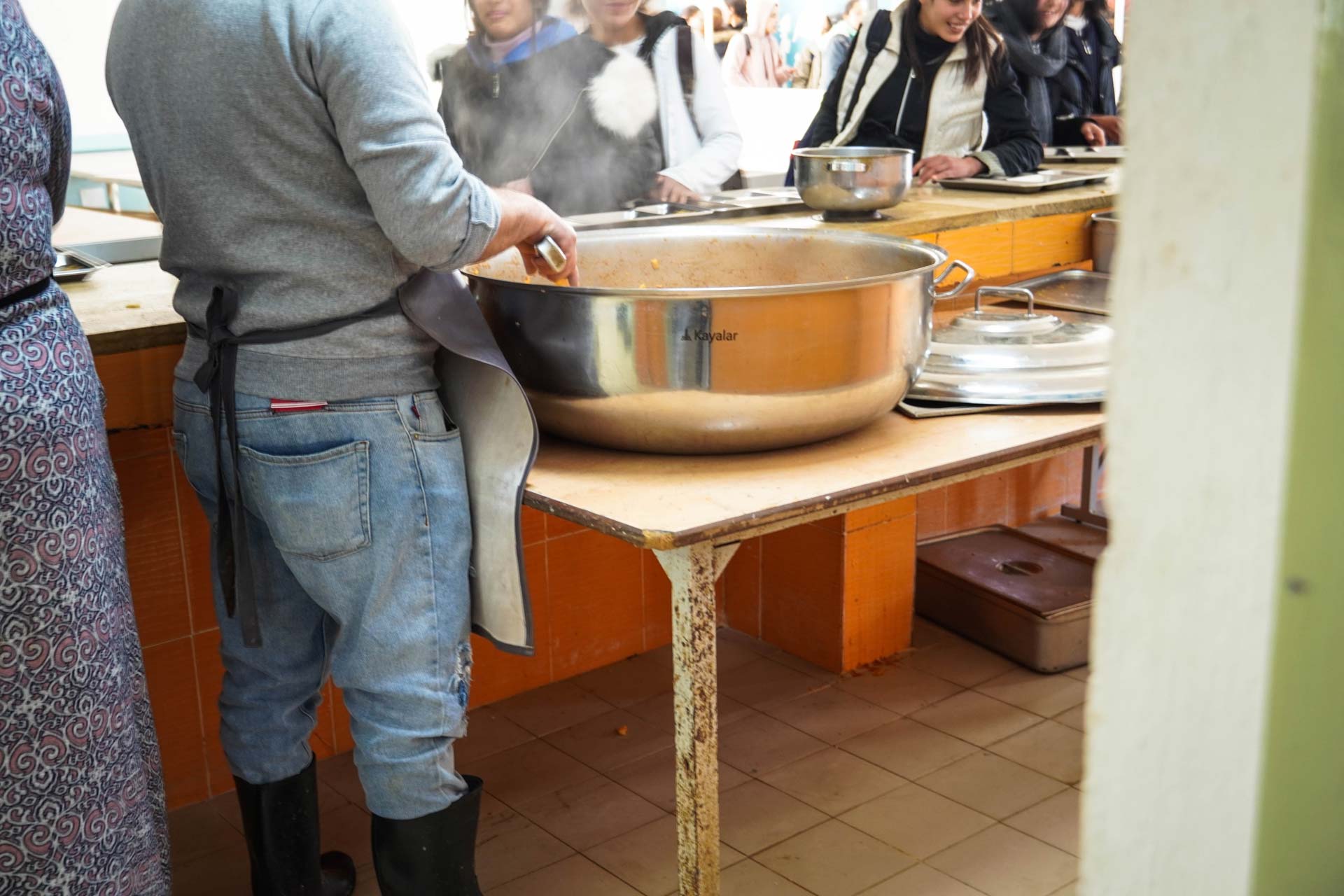

The canteen of the Makthar middle school. Meals will soon be provided by the Kid'Chen farm. Credit: Alice Pesavento.
This example corroborates the findings of a report by the Tunisian Institute of Strategic Studies on food and nutrition security in Tunisia, which suggests that "food isn't always used optimally and eating habits may result in malnutrition and disease. By the same token, nutritious food is a prerequisite for a child's ability to learn in school."
To achieve food self-sufficiency and provide healthy meals for the schoolchildren, Wallah We Can launched the " Kid'Chen "* initiative: the association leased an eight-hectare agricultural land from the State, some 30 kilometers from the college, for 3200 dinars per year.
To farm the land, the organization has identified unemployed parents of schoolchildren to train them in sustainable agriculture* over the course of several months. Nine of them are currently cultivating the eight-hectare plot of land.
The farmers unanimously believe that their work with the association is quite different from their previous jobs. They used to be daily workers in the informal sector, with no social security or fixed salary. They now enjoy the rights and benefits that come with formal employment, including bonuses, sick leave, and a fixed income.
"Before this, I had no idea how much I was going to earn per day. Now, I know that I am going home with 500 dinars per month," comments Mohamed, a farmer involved in the project.
On the same subject
They are also shareholders at a rate of 2% in the mutual agricultural services company created by Wallah We Can in their name. "We propose entrepreneurial solutions because they help create equal opportunities, they are sustainable and they generate profit in the long term and for several generations", stated the founder of the association.


The first plots of the Kid'Chen farm, about 30 kilometers from Makthar. Credit: Alice Pesavento.
A timeline that respects the crop cycles
A few rows of olive trees, a labyrinth of irrigation pipes, and sprouts emerging from the ground. Thanks to these fields, Kid'Chen will become the first supplier of the middle school canteen by September 2023. Sophie Maisonnier, nutritionist, naturopath, and collaborator of Wallah We Can explained that the menus must be determined by June 2023 at the latest. "We have to adapt the meals to the crops," she commented.
Sophie, Ameni and other agronomists and nutritionists are working to make sure that the proposed meals meet all the schoolchildren's nutritional needs. "We have selected the seeds that we think would have the most nutritional value for children and teenagers (...). We are trying to cover their needs in lipids, carbohydrates, and vegetable proteins while attempting to keep meat consumption to a minimum," said the nutritionist.
Their aim, she explained, is to limit the costs as well as the ecological footprint, while providing quality food. They have set up a system that respects the crop cycles. "We have established a crop calendar that we use to test as many varieties in the field as possible and to know which crops will be the most cost-effective not only for the school but also for the association," confirmed Ameni.
The surplus production is in fact sold at the wholesale market to self-finance the project: "We need to provide the tools necessary for parents, the school and its students, and the region as a whole, to be self-sufficient and responsible", explained Lotfi.
Boubaker Cheyeb, senior technician specializing in crop production and coordinator for the farmers trained by Wallah We Can, emphasized that "Kid'Chen is a unique project because here, all the profits go to you."
"People didn't think the project would last this long at first because of the harshness of the region and its conditions. But in the end, with everything we've learned and continue to learn, we know it's here to stay," he enthused.
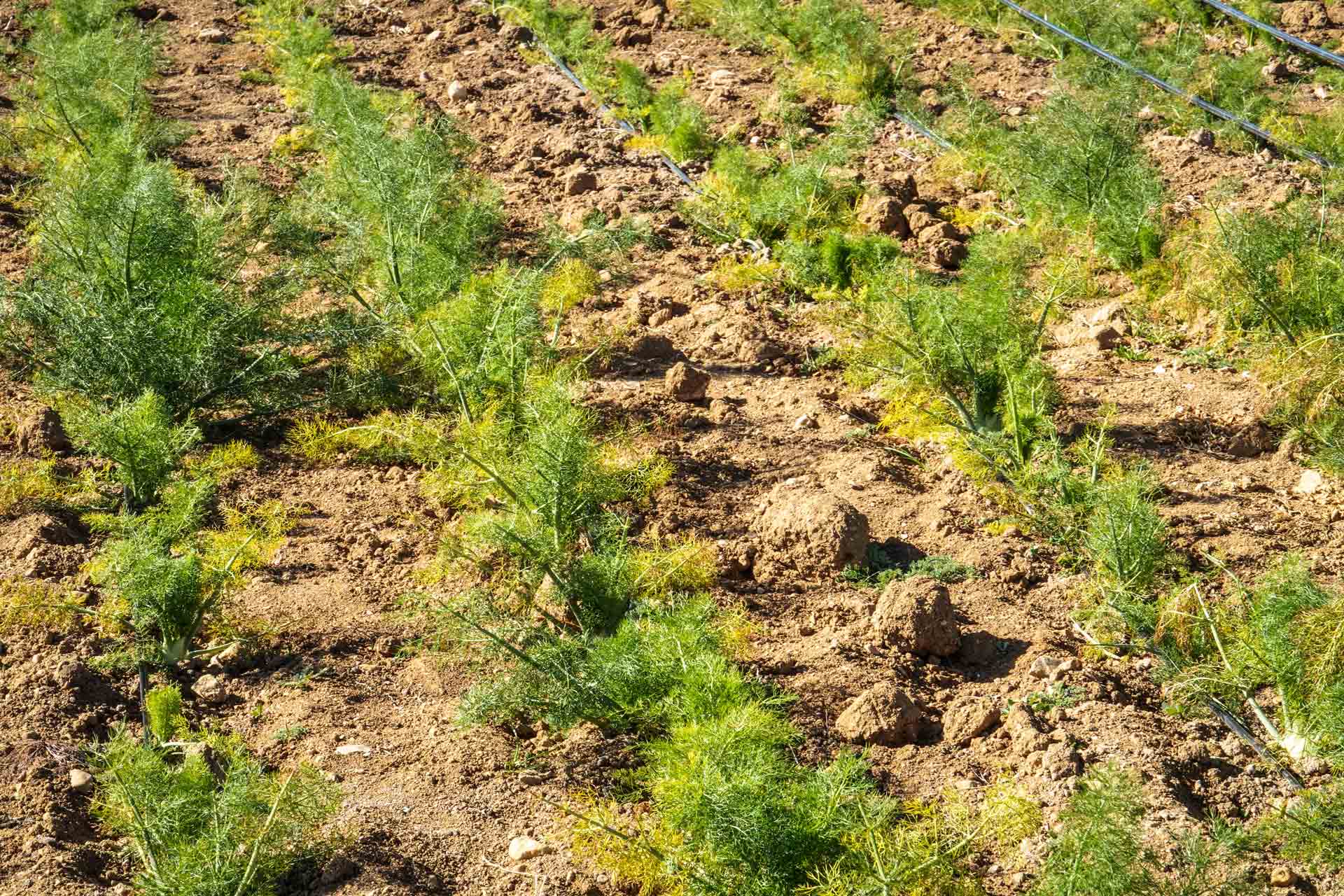

Fennel fronds emerge from the ground, in February 2023, the ideal season to grow this vegetable. Credit: Alice Pesavento.
More than just food
In the context of sustainable agriculture, apart from not resorting to pesticides, farmers are implementing a number of good practices that Ameni describes as "the legacy of the farmer's spirit".
On the same subject
These techniques include crop rotation*, which consists of dividing the land into several plots, and alternating different crops between them. This is to ensure that the same varieties aren't replanted in the same patches. "Each type of crop will leave nutrients for the next to help the plants grow and so on," she explained.
"I'm very proud to say that in a few months, my children will be able to eat healthy food thanks to something that I produced," Mohamed enthuses.
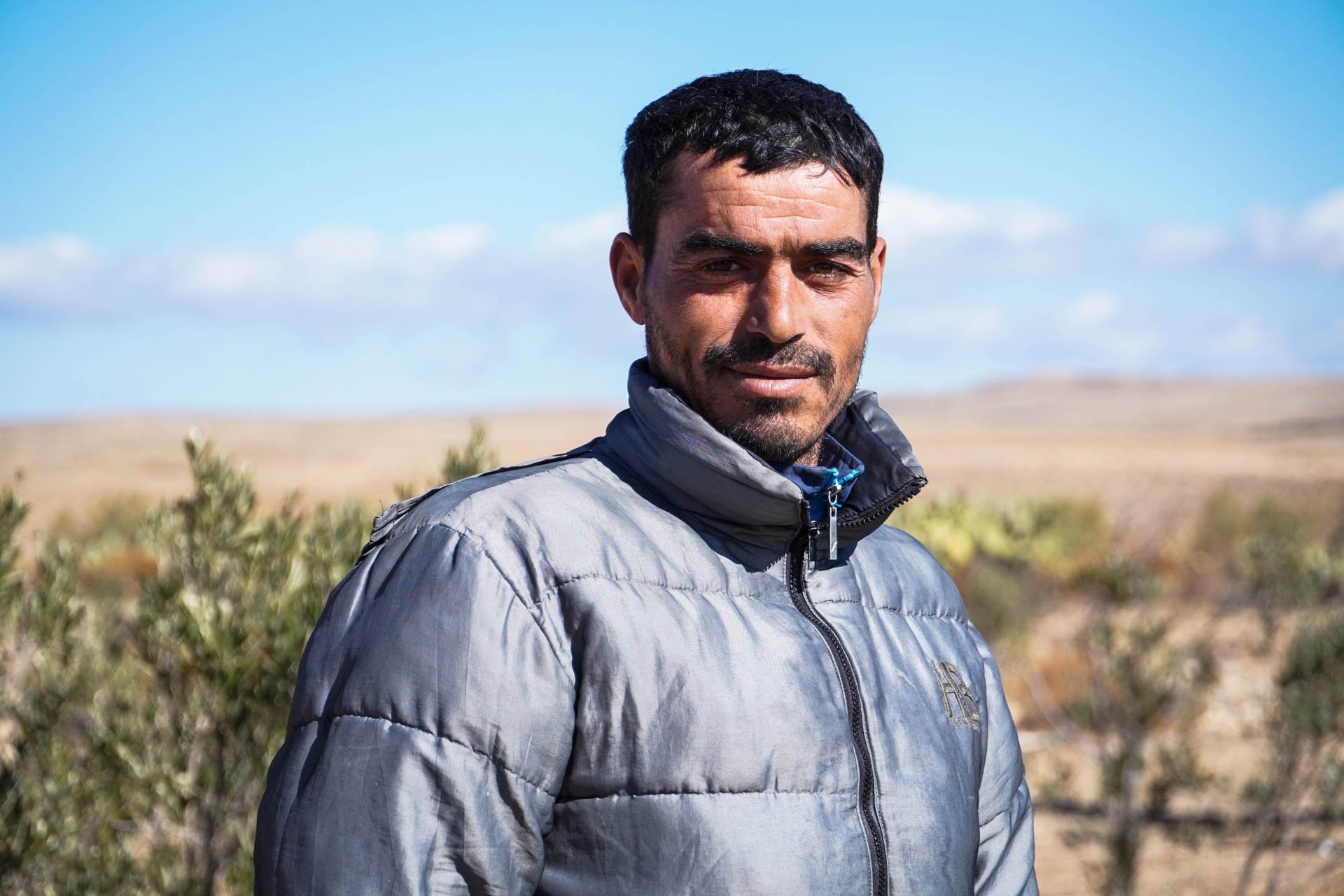

Mohamed, in the Kid'Chen farm. He has been working there from the beginning of the project, a year and a half ago. Credit: Alice Pesavento.
A Moroccan variety of bell pepper was tested in the first growing trials. "This bell pepper exceeded all our expectations. A Moroccan team even made the trip here to see our results," said Boubaker proudly.
Aside from these these trials, the association is also looking to partner up with local nurseries. "We found a nursery in Borj Cedria that provided us with four varieties of quinoa for testing, one of which grew quite well, with an excellent yield," added Ameni, who expects quinoa to be included in the schoolchildren's meals in the near future.
These changes are not only beneficial to the children's diet, but they also have an impact on "their health, their education and the economy of the country", according to Lotfi.
Adapting to the climate crisis
Everyone involved with Green School and Kid'Chen has mentioned two major issues: sustainability and climate change.
For years, the project's farmers have been aware that the lack of water is a threat to agriculture, and the projections are raising fears for the future climate in Tunisia. For 2023, the National Institute of Meteorology (INM) predicted that the governorate of Siliana will only receive 451.84 mm of rainfall. By the end of the century, this figure is expected to drop to 358.49 mm. This would lead to a 40% decline in cereal production at the national level.
"It has to rain. It is extremely painful to see the land dry up and the dam get empty over the years," says Mongia, a farmer with Kid'Chen.
"We obviously can't pretend that climate change isn't an issue. So we want to find adequate solutions to the problems we're facing, while sticking to sustainable agriculture". It's mainly for this reason that the association has developed greenhouse crops. Ameni believes that this is "one of many solutions" because "it's a controlled environment (...) that allows us to grow products all year round". This would make crops less susceptible to weather conditions while limiting the ecological impact, especially in terms of water consumption. Since greenhouses are closed systems, if watering is required, evaporation is limited and ambient humidity is retained.
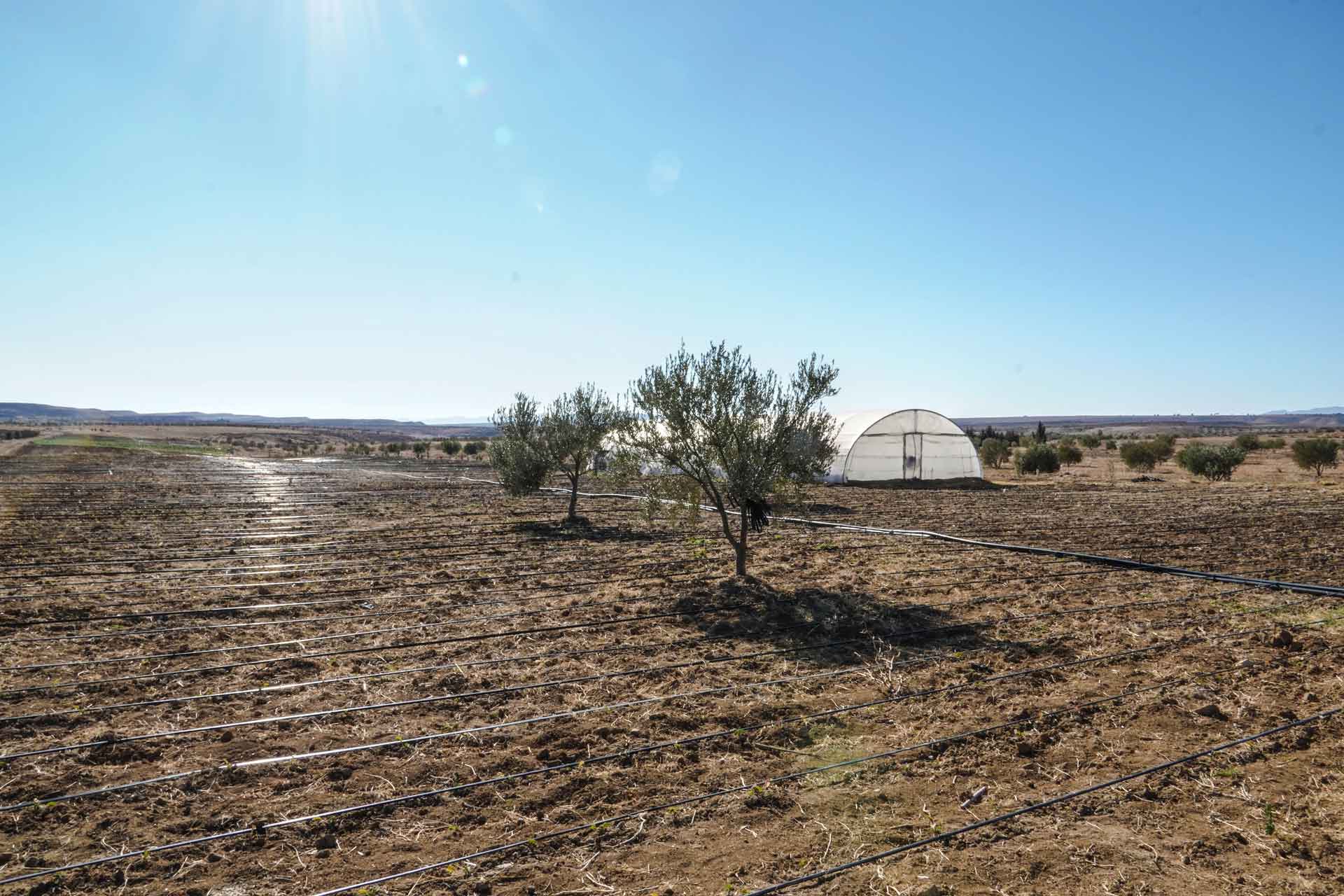

A greenhouse on the Kid'Chen farm. Growing crops in greenhouses helps prevent diseases and pests and creates optimal climatic conditions. Credit: Alice Pesavento.
Despite the rather grim forecasts, the Wallah We Can teams are convinced by the project and want to implement it in other regions of Tunisia. The Makthar residential school was actually the association's "pilot project". Wallah We Can intends to accompany three other schools in their transition to the "Green School" model in Bizerte, Gabes and Kairouan within a few years.
These areas were selected based on their bioclimatic diversity, which allows for the development of the project's regional adaptability, as Sophie explained. For instance, Wallah We Can is planning to establish an energy farm in Gabes, given the region's exposure to the sun.
"In Bizerte, we want to focus on processing. We'll do composting and beekeeping, and a major part of the farm will be dedicated to growing aromatic plants for processing and extracting essential oils for example. This transformation will give us added value and allow us to invest in our other projects," specified Ameni. For Sophie, the objective is "setting an example".
"That's why Makthar was a pilot project. By proving that we can adapt and go the extra mile, this exemplarity will give this type of business more credibility."
However, both women are under no illusions. "There will always be mass production factories, but we must prove that it's still possible to act as a citizen," Sophie continued.
Decentralizing governance, promoting sustainability, and democratically including all stakeholders in decision-making processes are among the principles and practices of the management of all Commons. In that sense, Green School and Kid'Chen are indeed considered Commons.
"With the clubs in the school, especially the permaculture club, we're planting the seeds in the children's minds. We're helping them understand that it's possible to make a positive change. Everything is done through knowledge transmission and sharing," explained the founder of the association enthusiastically.
For the Wallah We Can collaborators, the project "is about more pragmatic things, that are common sense and that engage the community as a whole, instead of leaving individuals to their own devices", summarized Sophie.
